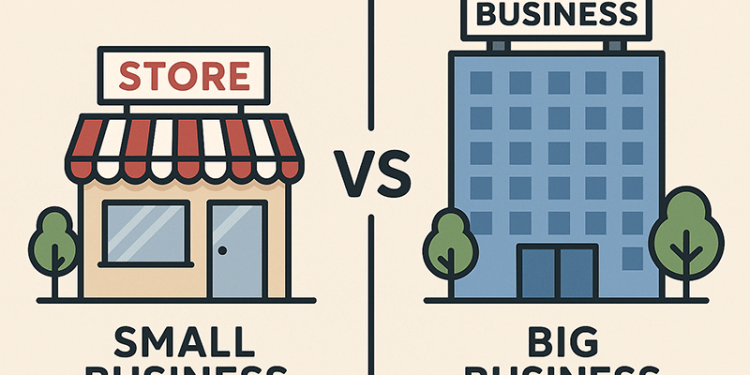For micro, small, and medium enterprises (MSMEs), competition with larger businesses often feels like a battle of unequals. Big companies usually have more resources, larger teams, advanced technologies, and strong brand visibility. With these advantages, it may appear that smaller businesses are destined to play catch-up, struggling to keep pace in industries where bigger often seems better.
But business competitiveness is not only about size. MSMEs possess strengths that large corporations often overlook: personal relationships, community presence, flexibility, and speed of decision-making. These qualities, when nurtured, can help small businesses hold their ground and even outperform their larger counterparts.
As the philosopher Heraclitus once said, “Big results require big ambitions.” For MSMEs, the ambition to thrive against bigger players must be rooted in strategic actions and a deliberate mindset. Staying competitive is not about imitating big businesses but about leveraging the advantages of being small, while building systems that create resilience and long-term value.
1. Focus on Customer Experience
One of the strongest advantages MSMEs have is the ability to treat customers as individuals. Larger businesses, with their wide customer base, often rely on standard interactions, which can feel impersonal. MSMEs can distinguish themselves by offering attentiveness, listening closely to customer needs, and delivering experiences that feel personal.
Over time, this consistent focus on experience builds loyalty. A loyal customer base becomes a protective edge in competitive markets, as customers are more likely to stay with a business that values them beyond transactions.
2. Leverage Agility and Speed
Where large organizations are weighed down by layers of decision-making, MSMEs can move quickly. This agility allows them to respond immediately to market changes, adjust to customer demands, and refine their operations without lengthy delays.
Speed, in this context, is more than fast delivery it is about the ability to adapt and remain relevant. In an environment where consumer preferences and market conditions change rapidly, agility becomes one of the most reliable competitive tools.
3. Embrace Digital Tools
Digital platforms have rebalanced competition in significant ways. With online visibility through social media, websites, and e-commerce platforms, MSMEs can connect with customers far beyond their physical reach. These tools, often affordable or free, allow small businesses to market effectively and engage directly with audiences.
The real advantage lies in consistency. By maintaining an active and professional digital presence, MSMEs demonstrate credibility and build trust. This presence enables them to stand alongside larger businesses in the same digital space, without requiring massive advertising budgets.
4. Differentiate Through Value, Not Price
Competing with larger businesses on price is rarely sustainable, as big companies often have the advantage of scale. MSMEs that pursue price competition may find themselves weakening profitability without gaining long-term advantage.
Instead, they can focus on value offering quality, authenticity, reliability, or unique services that cannot easily be replicated by larger organizations. Customers are more likely to remain committed when they perceive the business as offering something distinctive and worthwhile beyond cost.
5. Build Strong Local Connections
Larger businesses often operate on a broad, impersonal scale, but MSMEs have the opportunity to embed themselves deeply in their communities. By aligning with local needs, fostering close relationships, and maintaining visibility within their immediate environment, they can create loyalty that goes beyond product or service.
Strong community ties not only enhance trust but also provide resilience. Customers are more willing to support businesses that feel like part of their own environment, which strengthens the MSME’s long-term competitiveness.
However, MSMEs may not have the financial power of larger competitors, but they have something equally valuable: adaptability, closeness to customers, and the ability to remain personal in their approach. By focusing on customer experience, leveraging agility, embracing digital tools, delivering value, and strengthening local ties, MSMEs can remain competitive without imitating larger players.
MSMEs don’t have to be bigger to thrive, they only need to maximize their strengths with clarity and consistency. Small businesses stay competitive not by being large, but by being agile, intentional, and resilient.










